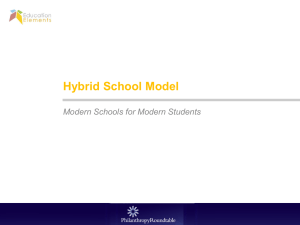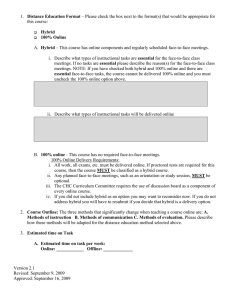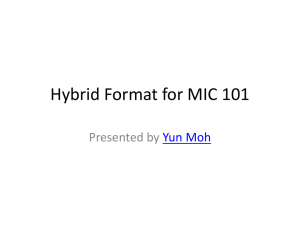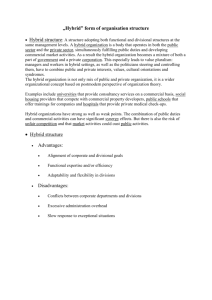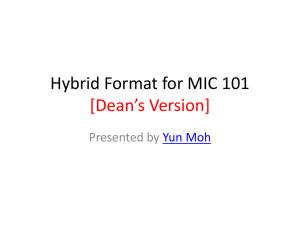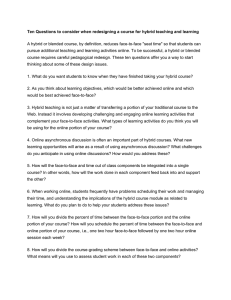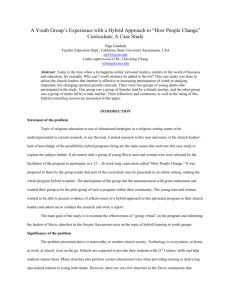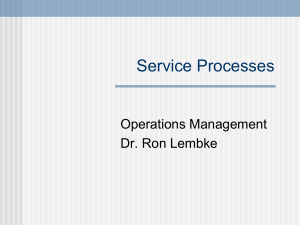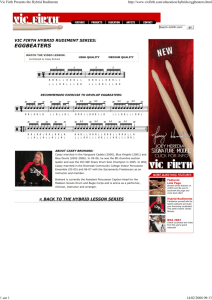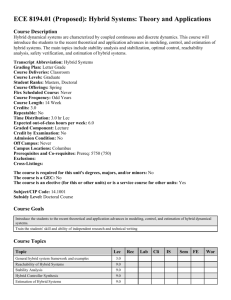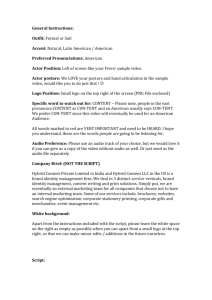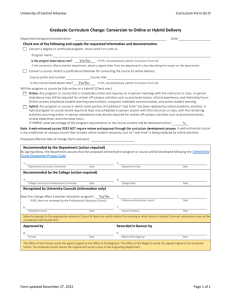Hybrid Courses at Rutgers University
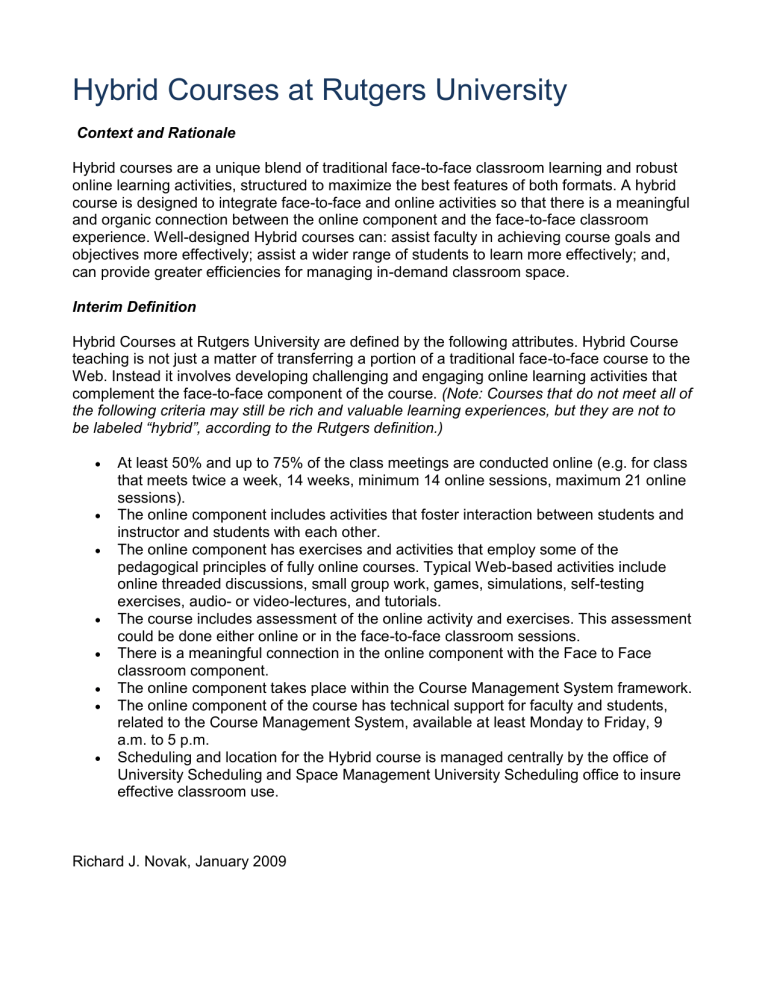
Hybrid Courses at Rutgers University
Context and Rationale
Hybrid courses are a unique blend of traditional face-to-face classroom learning and robust online learning activities, structured to maximize the best features of both formats. A hybrid course is designed to integrate face-to-face and online activities so that there is a meaningful and organic connection between the online component and the face-to-face classroom experience. Well-designed Hybrid courses can: assist faculty in achieving course goals and objectives more effectively; assist a wider range of students to learn more effectively; and, can provide greater efficiencies for managing in-demand classroom space.
Interim Definition
Hybrid Courses at Rutgers University are defined by the following attributes. Hybrid Course teaching is not just a matter of transferring a portion of a traditional face-to-face course to the
Web. Instead it involves developing challenging and engaging online learning activities that complement the face-to-face component of the course. (Note: Courses that do not meet all of the following criteria may still be rich and valuable learning experiences, but they are not to be labeled “hybrid”, according to the Rutgers definition.)
At least 50% and up to 75% of the class meetings are conducted online (e.g. for class that meets twice a week, 14 weeks, minimum 14 online sessions, maximum 21 online sessions).
The online component includes activities that foster interaction between students and instructor and students with each other.
The online component has exercises and activities that employ some of the pedagogical principles of fully online courses. Typical Web-based activities include online threaded discussions, small group work, games, simulations, self-testing
exercises, audio- or video-lectures, and tutorials.
The course includes assessment of the online activity and exercises. This assessment could be done either online or in the face-to-face classroom sessions.
There is a meaningful connection in the online component with the Face to Face classroom component.
The online component takes place within the Course Management System framework.
The online component of the course has technical support for faculty and students, related to the Course Management System, available at least Monday to Friday, 9 a.m. to 5 p.m.
Scheduling and location for the Hybrid course is managed centrally by the office of
University Scheduling and Space Management University Scheduling office to insure effective classroom use.
Richard J. Novak, January 2009
